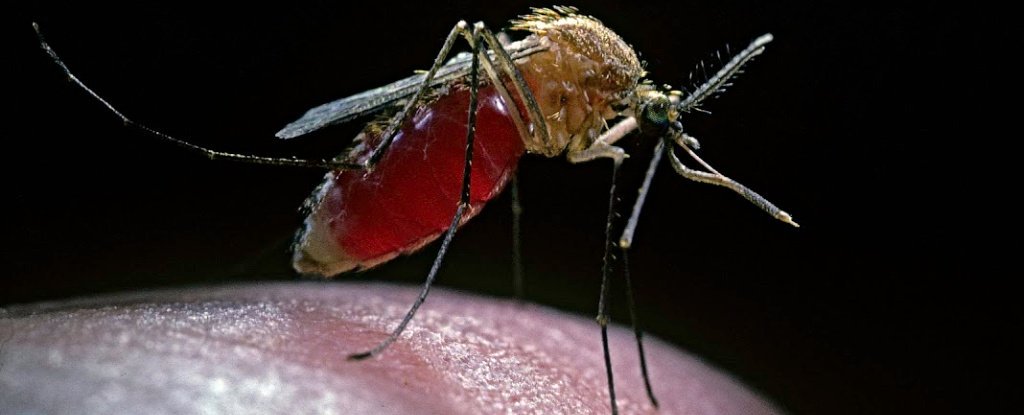蚊子能传播疾病,似乎也能阻断它
一种似乎能阻止蚊子传播疟疾的微生物被发现了
In 2018, the World Health Organisation estimated 228 million cases of the mosquito-borne disease, and 405,000 deaths.
2018,世界卫生组织估计有2.28亿例蚊媒疾病,405000人死亡。
But a new study may have found a brand new, highly effective way to stop the spread – and it was inside the mosquito all along.
但一项新的研究可能已经找到了一种全新的、高效的方法来阻止这种传播,而且这种方法一直存在于蚊子体内。
The team discovered that a new type of spore-forming single-celled microbe found in mosquitoes, which they've called Microsporidia MB, has the amazing ability to stop the transmission of Plasmodium falciparum – the parasitic protozoan which causes most malaria cases.
研究小组发现,在蚊子体内发现的一种新型单细胞孢子菌,他们称之为微孢子菌MB,有阻止恶性疟原虫传播的惊人能力,恶性疟原虫是导致大多数疟疾病例的寄生原生动物。

It also doesn't seem to hurt the mosquito, meaning that if we can increase the prevalence of Microsporidia MB in local mosquito populations, it could be a good way to stop malaria in its tracks without having to mess up the rest of the ecosystem.
它似乎也不会伤害蚊子,也就是说,如果我们能在当地蚊子种群中增加微孢子虫MB的流行率,这可能是在不破坏整个生态系统的情况下制止疟疾的好方法。
The idea that a mosquito microbe could be stopping the transmission of a disease isn't exactly new. Wolbachia, a genus of bacteria that naturally occurs in mosquito populations, has shown incredible potential for wiping out dengue and other mosquito-borne infections.
蚊子的微生物可以阻止疾病传播的想法并不新鲜。沃尔巴克氏菌Wolbachia是一种自然存在于蚊子种群中的细菌,在消灭登革热和其他蚊媒传染病方面显示出巨大的潜力。
This research is currently in its early stages – but the team found that when they analysed mosquitoes taken from field studies in Kenya, those with Microsporidia MB did not have the malaria parasite. Even when they let the mosquitoes drink infected blood, the mosquitoes with Microsporidia MB had reduced levels of infection and no signs of the malaria parasite's spores were detected.
这项研究目前尚处于初期阶段-但研究小组发现,当他们对肯尼亚实地调查中的蚊子进行分析时,患有微孢子虫MB的蚊子没有疟疾寄生虫。即使当它们让蚊子喝被感染的血液时,带有微孢子虫MB的蚊子 的感染水平也降低了,并且没有检测到疟原虫的孢子的迹象。
Because Microsporidia MB is passed down the maternal line, once it's in the mosquito population, it's unlikely to be going anywhere. The team found that some areas they tested already had nine percent of the mosquito population with the malaria-busting microbe.
由于 微孢子虫MB沿着母系传播,一旦进入蚊子种群,它就不可能流向其他任何地方。研究小组发现,他们所测试的一些地区已经有9%的蚊子具有抗疟疾的微生物。
The team hopes that with more research we can find out if it's possible to increase the amount of Microsporidia MB in the mosquito population – with the eventual goal of lowering rates of malaria.
研究小组希望,通过更多的研究,我们能够发现是否有可能增加蚊子种群中的微孢子虫MB数量,最终目标是降低疟疾发病率。
The research has been published in Nature Communications.
这项研究已发表在《自然通讯》杂志上。


















